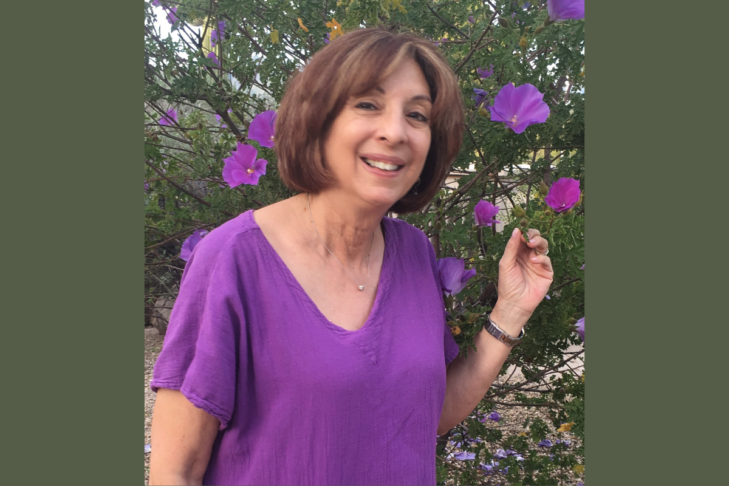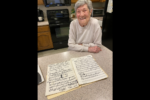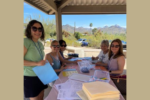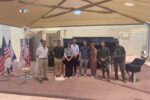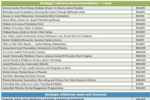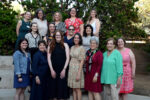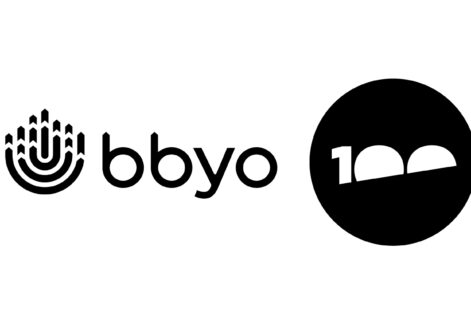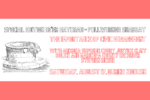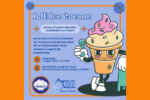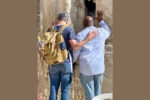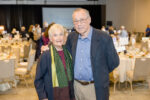In the first of four “Mussar: The Jewish Way of Building Character” classes, offered in February by the Women’s Leadership Institute (WLI), Sharona Silverman invited her students to explore the concept of “humility.”
To begin, she asked them to consider whether they take up too much or too little space in their daily lives. Their homework was to examine the ways they practiced humility during the week, where they resisted it and what they could do to foster it.
She suggested they use the focus phrase, “No more than my place, no less than my space,” that concretizes an otherwise abstract idea.
“You focus on it (the phrase), write it down, put it on your mirror, chant it or sing it — but think about it,” Silverman said. She wants them to recognize that they have value and deserve space while being mindful not to take more than their share. The course will also examine ethical considerations around honor and patience.
Mussar is a Jewish spiritual practice that gives concrete instructions on how to live a meaningful and ethical life, something Silverman has been studying and practicing since she first encountered it two decades ago.
After reading “Climbing Jacob’s Ladder: One Man’s Journey to Rediscover a Jewish Spiritual Tradition” by Alan Morinis, Silverman chanced to meet him at a book signing in Phoenix.
Silverman managed Temple Chai’s Shalom Center at that time, and along with then-Temple Chai Rabbi Mari Chernow and a few congregants, she started a Mussar group informally known as the “Mussar Mammas.”
She was drawn to Mussar for the way it makes the heart feel what the mind knows, thereby becoming a more holy and whole person. That was also the premise of the Shalom Center, which she co-founded in 1996.
“I felt we need to do that by feeling and acting on Jewish wisdom, not just with the head. Mussar teaches us we are holy souls and our job is to be a vessel to bring this wholeness into the world,” she said.
Rabbi Elana Kanter started WLI eight years ago. Since then, 104 people have gone through the Institute as mentors or mentees. When COVID-19 appeared, Kanter suspended the regular program and focused instead on her alumnae.
“We could build on existing relationships but we couldn’t build new ones on Zoom,” she said.
Silverman is the alumnae program’s first class; she was a mentor in WLI’s first cohort eight years ago.
Kanter generally teaches at the Institute, but though she was already familiar with Mussar — had even taught it — she recognized Silverman as the expert and is content to be a student in the class.
She approves of Silverman’s method, especially giving homework that encourages students to develop character traits while learning about them simultaneously.
“When I was teaching Mussar, it was just the ideas but we weren’t actually doing it. It really is something that’s meant to be done,” Kanter said.
Aside from writing down the focus phrase and journaling, Silverman encouraged students to find “small, concrete or time-bound activities” to do regularly. For example, those taking too little space should try to become more visible, perhaps by wearing bright clothing or raising their hands in class. Conversely, for those who take too much space, they might try sitting in the back of the room for a change, Silverman said.
People might find those things uncomfortable, but it’s all a part of the work.
Jessielyn Hirschl is bringing the lessons to her work and personal life.
She is generally a front-of-the-class person, but only because she is concerned for the presenter/teacher, who might not think people are engaged.
“I raise my hand because I worry about them, but maybe I shouldn’t be so quick to fill that space. Maybe I should let the silence linger and give space for something to happen,” she said.
“This class has already been transformational,” Hirschl said. “I told Sharona that I’ve tried to work on myself in a lot of different ways but this is the first time I’m really unpacking some of the challenges in my life.”
Kerri Robbins also sees places to incorporate these lessons into her daily life and has let people share their frustrations with her without rushing to solve the problem.
“Sometimes people just need to share and be heard, and my proper place is just to be a listening ear,” she said.
Ellen Widoff saw the lesson’s connection between humility and healthy self-esteem.
“Importantly, to be humble is not to hide but to provide the best service possible to others. Mussar implies that when we acquire self-knowledge, it is not just self-serving, but ensures that we radiate and expand our influence to others,” she said.
For Kanter, the lesson about humility started the moment the class did.
“Anytime you put yourself in a learning situation, it really is an act of humility. It’s important for teachers to remember that experience,” Kanter said.
“Some people want to stay on an intellectual plane and Mussar might seem touchy-feely, but Judaism has a rich tradition of meditation. This offers a path to a life of mitzvot and Torah study with an open heart,” Silverman said. JN
To learn more about The Women’s Leadership Institute, visit womenlearning.org.
This article was originally published by the Jewish News.
This post has been contributed by a third party. The opinions, facts and any media content are presented solely by the author, and JewishPhoenix assumes no responsibility for them. MORE


